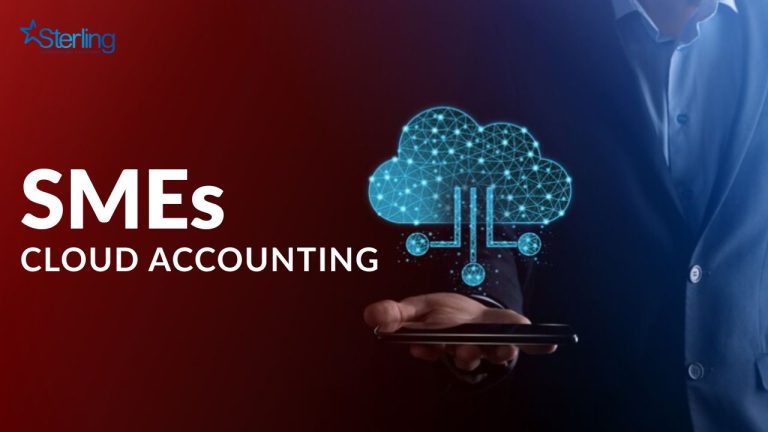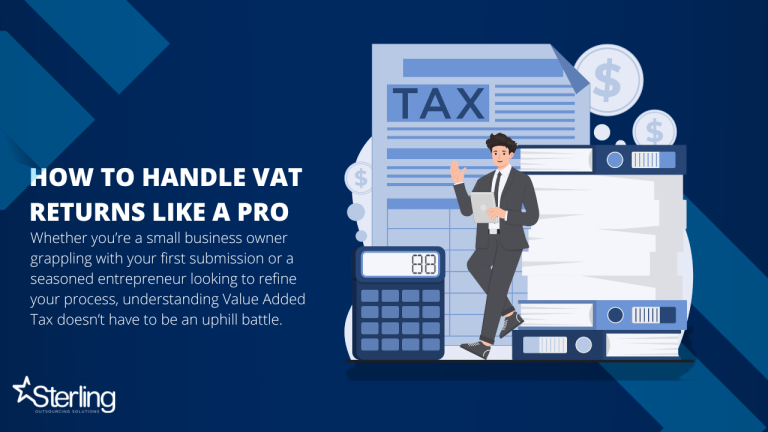- The United States dominates the global public cloud market, with a projected spend of $466.06 billion in revenue in 2025.
- 42% of Australian businesses use paid cloud computing to manage their operations.
- 38% of European companies rely on cloud-based financial software.
But what exactly is “the cloud,” and why is it so crucial for businesses today? The term “cloud” has become so widely used that it might seem a bit overhyped. However, cloud computing has never been more important for small and medium-sized businesses (SMBs), especially when it comes to accounting. To put it simply, “the cloud” refers to computing services delivered over the internet—this includes storage, data analysis, and, as we’ll discuss here, accounting services.
Cloud accounting software can transform the way you handle bookkeeping, streamline financial management, and provide you with real-time insights into your business’s finances. But with a vast array of platforms to choose from, how do you decide which one is right for you? This article will walk you through the core benefits of cloud accounting and recommend some platforms to fit your business needs.
What is Cloud Accounting?
Recording income and expenses to monitor your business’s financial performance isn’t new. Double-entry bookkeeping has been around for centuries, and accounting software has existed for decades, allowing finance teams to track money flowing in and out of businesses.
But how does cloud accounting improve upon this? Let’s break down the key differences:
- Traditional Accounting Software
Before cloud computing, most accounting software ran on desktop computers. This setup had limitations, such as restricted access to data, constant software updates, and the ongoing cost of backing up financial records.- Cloud Accounting Software
Cloud accounting, or online accounting, offers the same functionalities as desktop accounting software, but with key enhancements. Instead of installing software on your desktop, you access an up-to-date online platform, and all your data is stored securely on cloud servers. Many cloud platforms also feature open APIs, enabling third-party software to connect and offer additional value to your business.
- Cloud Accounting Software
Benefits of Cloud Accounting
Shifting from traditional desktop accounting to cloud-based systems has significantly improved financial management. Here are the main benefits:
- Access Your Accounts Anytime, Anywhere
Cloud accounting means you can access your financial data from any location with internet access. Whether you’re using a laptop, phone, or tablet, you’re not tied to a single office computer.
- Real-Time Information
With up-to-date bookkeeping and bank reconciliation, you can generate real-time reports. Unlike traditional reports, which may be days, weeks, or months out of date, real-time data gives you an accurate snapshot of your current financial position. This is essential for managing cash flow, planning future expenses, and making informed business decisions.
- Expand with Third-Party Apps
Cloud accounting platforms often support open APIs, allowing you to integrate third-party apps. Whether it’s cash flow forecasting tools, online invoicing, or industry-specific project management software, these integrations enhance your system’s functionality and help streamline operations.
- Live Bank Feeds
Some cloud platforms offer live bank feeds, linking your bank account directly to your accounting system. This eliminates the need to manually enter transaction data, speeding up bank reconciliation and improving the accuracy of your bank balance.
- Automatic Updates
With cloud accounting, you’re always using the latest software version. There’s no need for manual updates, and your provider will automatically apply security fixes, ensuring you’re always working with the most secure version of the software.
- Secure Sharing of Data
Collaborating with accountants, bankers, or other advisors becomes easy and secure. You can grant them real-time access to your financial information without the need for USB drives or email exchanges. This is faster, safer, and provides your advisors with the most up-to-date data to offer valuable insights.
When Should Your Business Use Cloud Accounting?
To fully capitalise on cloud accounting, it’s best to take advantage of the platform’s digital connectivity and real-time capabilities. Cloud accounting is particularly beneficial if your business needs fast access to financial data, performance metrics, and KPIs. The open API feature also gives you flexibility in building a custom suite of apps.
Here are some key areas where cloud accounting shines:
- Automating Workflows
Cloud accounting can automate processes like bookkeeping, cash collection, and bank reconciliation, significantly reducing manual tasks and administrative burdens on your team. - Gaining Deeper Financial Insights
With real-time reporting and data analysis, cloud accounting provides you with actionable insights to make more informed decisions. - Simplified Tax Filing
Cloud accounting platforms often allow you to track and pay taxes digitally. Your financial records can be automatically populated into the relevant tax templates, which can then be submitted directly to tax authorities. - MTD Compliance
The UK’s Making Tax Digital (MTD) initiative requires businesses to keep digital tax records and submit returns electronically. Cloud accounting makes this transition seamless, ensuring compliance. - Supporting Remote Work
Cloud accounting enables flexible working arrangements, allowing your finance team to access key data from anywhere with internet access.
Popular Cloud Accounting Software
There are numerous cloud accounting platforms available, each catering to different business needs. Some popular options include:
- Xero – Ideal for small businesses, Xero offers simple accounting tools that grow with your business. It also boasts an extensive app ecosystem.
- QuickBooks Online – A solid choice for small businesses, QuickBooks Online provides comprehensive accounting features with a great app marketplace.
- Sage 50cloud and Sage 200cloud – These combine the convenience of the cloud with the robust capabilities of desktop software.
- KashFlow – Best for small businesses seeking straightforward functionality without too many bells and whistles.
- Zoho Books – Known for its integration with other Zoho business software, it also supports third-party app integrations.
- FreeAgent – Perfect for freelancers, contractors, and micro-businesses, FreeAgent is easy to use without unnecessary features.
- ClearBooks – A great option for small businesses, ClearBooks even offers a free plan for very small businesses.
- QuickFile – Like ClearBooks, QuickFile offers a free version for smaller businesses.
- Exact – Provides additional functionality beyond accounting, suitable for both small businesses and larger enterprises.
- Sage Business Cloud Accounting – Offers scalability for larger businesses but may require additional modules that can add to costs.
- MYOB – Popular in Australia, MYOB provides a streamlined cloud-based accounting solution for small businesses.
Cloud Accounting Glossary
If you’re new to cloud accounting, here are some common terms to help you navigate the world of digital finance:
- API – A tool that allows different software applications to communicate and work together.
- App Stack – A collection of third-party apps integrated with your cloud accounting system.
- Bank Feed – A feature that connects your bank account directly to your cloud accounting software, automatically importing transaction data.
- Cloud Reporting – Real-time data visualization and business intelligence tools integrated into cloud accounting platforms.
- Cloud Server – The online server where your financial data is securely stored and managed.
- Debtor Tracking – The process of managing unpaid invoices, often automated with apps.
- Digital Transformation – The process of adopting digital tools like cloud accounting to modernize business operations.
- Forecasting – The practice of predicting future financial performance based on current data.
- MTD – The UK government’s initiative for digital tax reporting, requiring businesses to maintain digital records.




